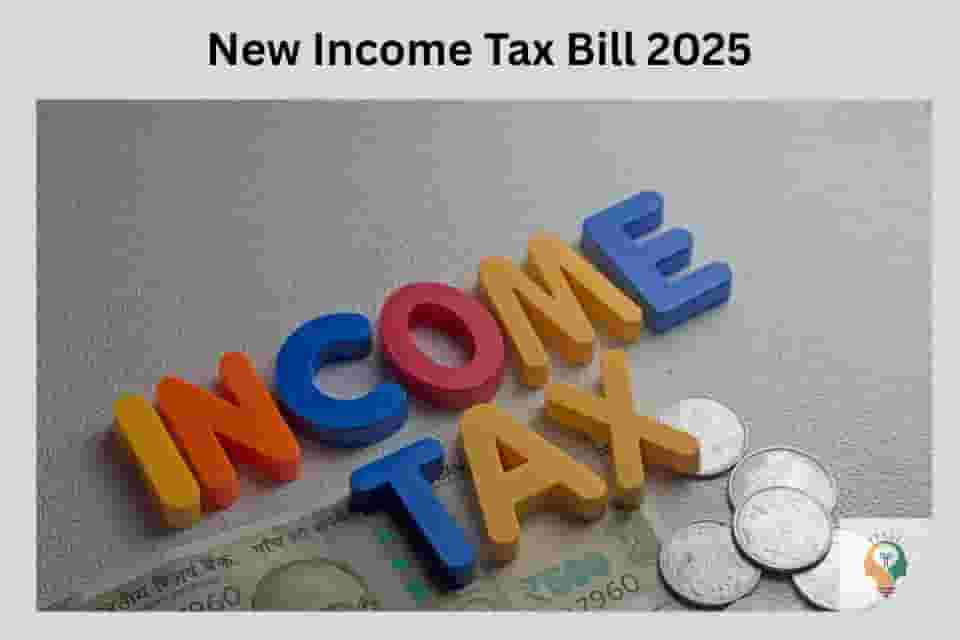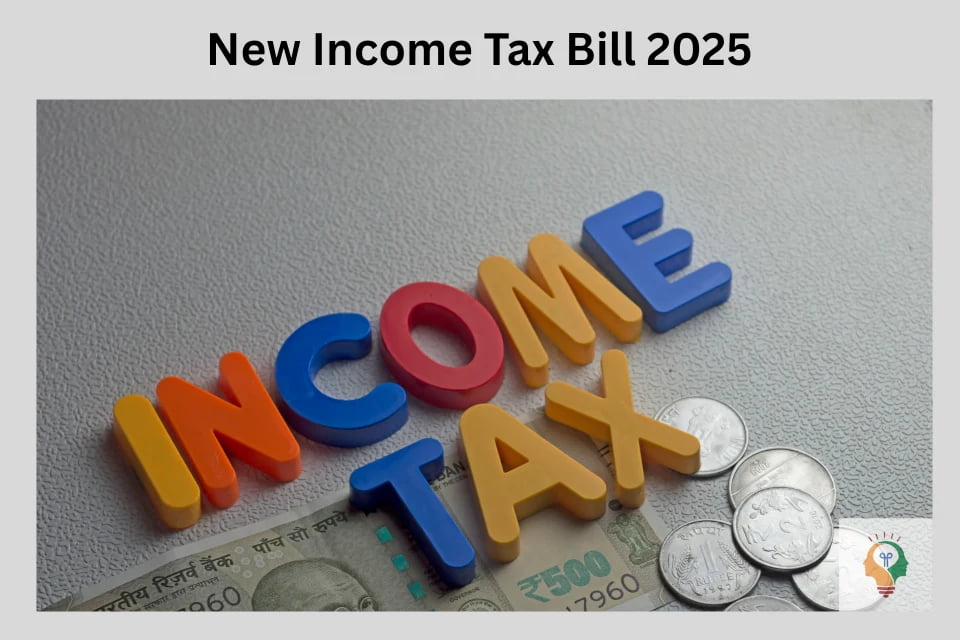What To Know About The New Income Tax Bill 2025: Top 30 FAQs
Updated: 09-10-2025 at 11:39 AM
1k


The New Income Tax Bill 2025 arrived for introduction before the Lok Sabha on 15th February 2025 through Finance Minister Nirmala Sitharaman. This piece of legislation aims to transform the tax system which the nation used since the 1960s. The government intends to create a transparent tax system through the simplification of tax laws and their provision. The section addresses detailed questions about the bill's characteristics together with its intended benefits for taxpayers and purposes.
Also Read: The Income Tax Bill of 2025 Makes Vital Amendments To Agricultural Income Tax Rules
1. What is the date of enforcement for the present Income-tax Act?
The Income-tax Act adopted its original legal form on April 1st 1962 until it needed multiple revisions until the present day.
2. Why did the authorities decide to replace the Income-tax Act from 1961?
The 1961 Act obtained an expansive framework because of the various amendments made to it. The new bill adopts three main points through its digital features that help simplify tax laws improve enforcement and combat tax evasion.
3. What are the key objectives of the New Income Tax Bill 2025?
The bill aims to:
-
Simplify the tax structure
-
Improve tax compliance
-
Reduce litigation
-
Indian taxation needs to follow conventions that exist internationally.
-
The new law provides digital tools for enforcing taxation across the board.
4. How does the new bill simplify tax laws?
The measure shortens the law’s extensive pages from 800 to 622 by removing outdated sections and presents tax rate information in organised tables for improved understanding.
5. What changes have been made to tax slabs?
The official rates for taxation have undergone a shift in presentation although the existing tax brackets remain similar to previous years. Taxpayers need to consult official tables to verify present tax rate information.
6. How does the bill impact salaried employees?
The proposed changes in the bill create advantages for wage earners through better tax deductions along with simplified tax return processes coupled with reduced conflicts with the tax department.
7. Will there be changes to the tax filing process?
The proposed bill presents digital filing standards together with improved efficiency measures designed to strengthen accuracy rates.
8. How does the bill impact corporate taxation?
The tax framework for corporations received adjustments toward international taxation standards while creating better conditions for conducting business in India.
9. Are there new provisions for digital transactions and cryptocurrencies?
Digital transactions alongside emails and social media accounts fall within the authority scope of tax investigators for tax investigations aimed at preventing tax fraud and evasion.
10. How does the bill address tax evasion?
-
Enhanced digital monitoring of transactions.
-
Stricter penalties for non-disclosure of income.
-
The legislation grants expanded capabilities to tax authorities enabling them to perform investigations into financial operations.
Read More: 20 Easy Ways to Save Income Tax in 2025
11. How does the bill promote voluntary tax compliance?
Simplification of tax rules together with the elimination of uncertain areas enables people and companies to maintain tax compliance while avoiding external professional guidance.
12. Will the bill impact tax deductions and exemptions?
Under this bill, the clearing system for tax deductions and exemptions contains defined categories that resolve ambiguities.
13. What changes have been made for Non-Resident Indians (NRIs)?
Double tax relief provisions within this bill together with tax clarification for NRIs with Indian source income bring enhanced tax compliance benefits for them.
14. The recently introduced bill will it pose any impact on incoming foreign business investments within India?
Tax law reforms made by the Indian government strive to achieve investment attractiveness by implementing worldwide industry standards in their legislation.
15. The new bill requires which specific compliance measures from taxpayers?
Every taxpayer must maintain records electronically through digital systems before submitting their returns on time to avoid penalty charges.
16. How does the bill affect tax disputes and litigation?
The proposed bill conducts legal simplification for tax laws to minimise court battles and create specific procedures to handle tax disagreement settlement.
17. What changes have been made in capital gains tax?
The new system for capital gains tax has simplified the process by dividing assets into fewer groups to improve taxpayer understanding.
18. Are there any new penalties under the new bill?
The government has updated penalty structures as part of an effort to stop tax fraud while promoting responsible tax behaviour. The new bill increases both penalties for making late declarations and accusations of false information.
19. What effects does the bill introduce for startups together with small businesses?
Small organisations together with startups will find advantages from new streamlined tax regulations and tax benefits to help them grow.
20. The new bill introduces what changes specifically benefit senior citizens.
Under the new tax bill, senior citizens maintain added deductibles while benefiting from systemized tax return procedures.
Read More: Explaining The Tax Year In The New Income Tax Bill 2025
21. What role does technology play in the new tax framework?
Technology will play a major role in compliance, with AI-driven tax assessments and real-time monitoring of financial transactions.
22. How does the bill impact agricultural income taxation?
Agricultural income remains exempt from taxation, but stricter monitoring is introduced to prevent misuse.
23. Are there any special provisions for freelancers and gig workers?
Yes, the bill introduces simplified taxation rules for freelancers and gig workers to encourage compliance.
24. How does the bill affect property taxation?
Real estate transactions will be more transparent, with updated capital gains tax provisions and stricter compliance measures.
25. What are the new audit requirements for businesses?
Businesses will need to digitally verify financial records and ensure compliance with updated tax norms.
26. How will the bill impact foreign remittances?
Foreign remittances need to report their transactions using simplified standards that promote improved transparency.
27. Are digital payments affected by the new tax bill?
The new real-time monitoring system oversees all digital transactions to combat tax evasion while stopping fraudulent activities.
28. What changes have been made in TDS (Tax Deducted at Source)?
The rules related to TDS have undergone simplification while new thresholds exist to help individuals understand the deductions more easily. Moreover, the system now performs automatic deduction calculations.
29. The bill follows what standards have been established for taxation by world governments?
The legislation uses OECD guidelines to stop tax double deductions while fulfilling requirements for preventing international tax evasion.
30. The New Income Tax Bill 2025 is expected to start operation when?
The bill needs to start operating with parliamentary approval less than one year before 1st April 2025.
Conclusion
The Indian taxation system transformed significantly based on the essential provisions of the New Income Tax Bill that will become effective by 2025. The bill advances transparency measures to increase ease for tax procedures through digital implementation which benefits taxpayers. Taxpayers need to track legislative changes regarding tax behaviour by consulting with professional advisors to understand tax rule implications on their financial obligations.
Get the latest updates on government schemes and policies with Jaagruk Bharat. Join India's biggest Jaagruk Bharat community. Share your thoughts, questions, and your favourite topics for us to cover.
0
0
1k
0
0
1k Views
0
No comments available





Our Company
Home
About
T&C
Privacy Policy
Eula
Disclaimer Policy
Code of Ethics
Contact Us
Cancellation & Refund Policy
Categories
Women
Insurance
Finance
Tax
Travel
Transport & Infrastructure
Food
Entertainment
Communication
Government ID Cards
E-commerce
Traffic guidelines
Miscellaneous
Housing and Sanitation
Sports
Startup
Environment and Safety
Education
Agriculture
Social cause
Employment
Disclaimer: Jaagruk Bharat is a private organization offering support for documentation and government scheme access. We are not affiliated with any government body. Official services are available on respective government portals. Our goal is to make processes easier and more accessible for citizens.
All Copyrights are reserved by Jaagruk Bharat